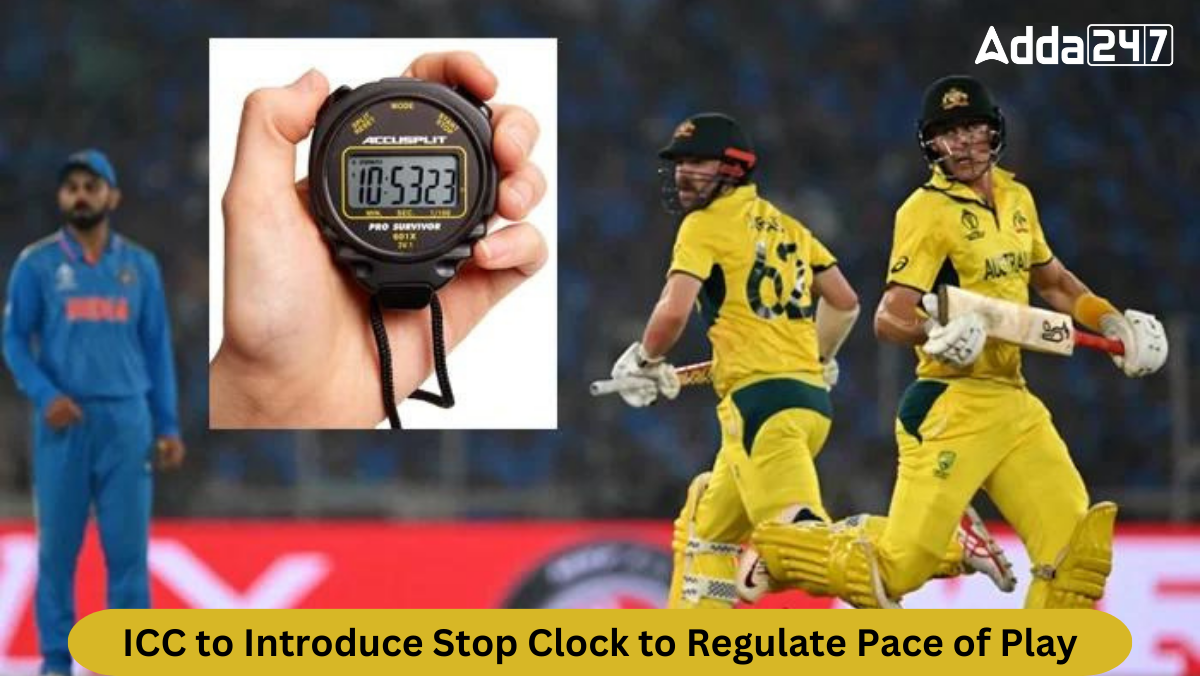Introduction
Cricket’s governing body, the International Cricket Council (ICC), is set to implement shot clocks in men’s One Day International (ODIs) and T20 International (T20Is) as part of its ongoing efforts to regulate and enhance the pace of play. The trial, scheduled to run from December to April, involved imposing penalty runs on the bowling side if they fail to commence a new over within 60 seconds on three occasions during a match.
The Trial Period
From December 2023 to April 2024, the stop clock rule will be in effect. Bowlers will face penalties if they fail to commence a new over within 60 seconds on three occasions during a match. This innovative approach is a part of the ICC’s broader efforts to make the game more dynamic and engaging for fans.
Inspiration from Other Sports
The introduction of shot clocks draws from other sports, notably tennis, where similar time regulations have been successfully employed to maintain a brisk pace and improve the overall spectator experience. The ICC’s decision reflects a broader commitment to modernizing the game and aligning it with contemporary sports standards.
Purpose and Rationale
The ICC, through its chief executives committee, aims to address concerns about the slow pace of play in limited-overs format. The new rule is designed to inject urgency into the game, ensuring the matches progress smoothly and captivate the audience’s attention. The imposition of penalty runs serves as tangible consequence for teams that do not adhere to the specified time limits.
Exemption for Australia-India T20 Series
While the shot clock trial is set to commence soon, it won’t be enforced during the upcoming T20 series between Australia and India. This exemption allows players and teams to acclimatize to the new regulations gradually and it also provides an opportunity for the ICC to assess the impact of shot clocks on the game.
Evolution of Time Regulations
This initiative is not the first instance of the ICC implementing time-related penalties. In the previous year, the ICC introduced penalties for fielding teams that failed to start the final over within the stipulated time in international white-ball matches. The deduction of points for slow over rates in Test matches has also been in effect, with recent instances involving England and Australia during the Ashes series.
Test Matches Excluded
While the ICC is actively addressing the pace of play in limited-overs formats, the new rule changes do not extend to Test matches. Despite a recent decline in over rates in Test cricket, the governing body seems to be adopting a measured approach, possibly considering the distinct nature and traditional elements of the longer format.
Historical Context
Australia’s exclusion from the 2021 World Test Championship final due to a slow over rate during the 2020 Boxing Day Test against India highlights the consequences of not adhering to established time regulations. Such historical instances serve as a reminder to teams about the importance of maintaining a reasonable over rate.




 Which Country of the World has No Capita...
Which Country of the World has No Capita...
 C.P. Radhakrishnan Biography, Know About...
C.P. Radhakrishnan Biography, Know About...
 Which is the Oldest Bank of India? Check...
Which is the Oldest Bank of India? Check...

